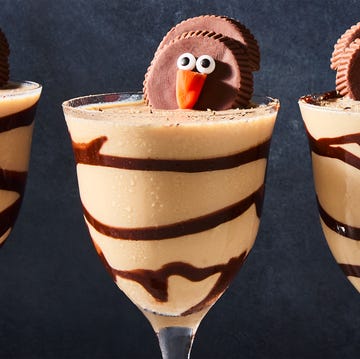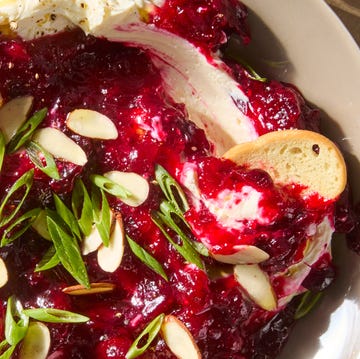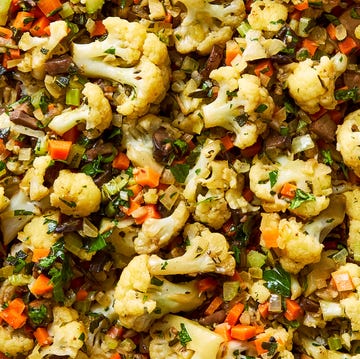1Everything needs to be fully cooked.
 Ethan Calabrese
Ethan CalabreseIf you find that part of the turkey is undercooked, don't wrap it up with the intention of cooking it later. According to the USDA, food must be cooked to a safe temperature before it's refrigerated to reduce the risk of foodborne illness. Using a food thermometer is the easiest to know whether you've done it right.
2Stay away from the "danger zone".
 vxla/Flickr Creative Commons
vxla/Flickr Creative CommonsFood sitting between 40 and 140 degrees F is considered to be in the "danger zone" for bacteria growth. Hot food should stay above 140 degrees F, while cold foods should be below 40 degrees F. Anything in between needs to be refrigerated within two hours of cooking, which means dinner conversation might need to be cut short to wrap up the leftovers.
Advertisement - Continue Reading Below
3Your slow cooker is a secret weapon.
 Jonathan Boulton
Jonathan BoultonYou may not have warming trays or chafing dishes lying around to keep hot foods up to temperature, but if you've make any of your Thanksgiving dishes in the slow cooker, keep it on low to maintain proper warmth until you have time to put the food away.
4Toss anything that's been sitting out too long.
 Chelsea Lupkin
Chelsea LupkinAny perishable dishes that have been out on the dining table for more than two hours unfortunately should go straight into the trash. Maybe that will convince you to have any extra helping of butter-laden mashed potatoes and creamy green bean casserole during dinner.
Advertisement - Continue Reading Below
5Divide and conquer.
 Ethan Calabrese
Ethan CalabreseHot items like soup and gravy should be divided into smaller containers to help them cool more rapidly and avoid bacterial growth. They can be placed right into the fridge or chilled in an ice bath before refrigerating.
6Be sure to slice up the bird.
 Ethan Calabrese
Ethan CalabreseThe best way to store leftover turkey is to cut it into smaller portions before refrigerating. Instead of throwing a piece of foil over your giant turkey platter, slice up the breast meat and keep the legs and wings whole.
Advertisement - Continue Reading Below
7Wrap it up right.
 getty images
getty imagesAirtight packaging and containers are key in order to preserve your leftovers safely. Wrap and seal everything tightly to keep out bacteria — this will also help keep everything moist and stop your food from picking up odors from the fridge.
8Don't forget about dessert.
 Jon Boulton
Jon BoultonWhile pecan and apple pies can be stored covered at room temperature, custard and pumpkin pies need to be refrigerated in order to stay fresh.
Advertisement - Continue Reading Below
9Be diligent with your "doggie bags".
 Getty Images
Getty ImagesSending your guests off with some extra turkey and mashed potatoes? If they'll be traveling for over two hours, you should pack it up in a cooler or put it on freezer packs so the food keeps the whole way home.
10After four days, it's game over.
 Chelsea Lupkin
Chelsea LupkinEven if you've followed all the rules and stored your leftovers properly, the fourth day is last call to feast on your holiday meal.
Advertisement - Continue Reading Below
11So take advantage of freezer space.
If you want to prolong the deliciousness of Turkey Day long after November, wrap up your leftovers and freeze them right away. Frozen items keep for at least three to four months, as long as they stay cold enough. Longer than that and the food will likely lose moisture and flavor.
12Definitely get creative.
 Chelsea Lupkin
Chelsea LupkinIf you're eating extra stuffing out of the Tupperware with a fork, you're doing it wrong. Transform the turkey and sides into something else entirely.
Advertisement - Continue Reading Below
Advertisement - Continue Reading Below
Advertisement - Continue Reading Below
























